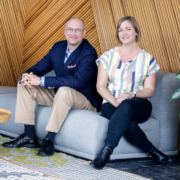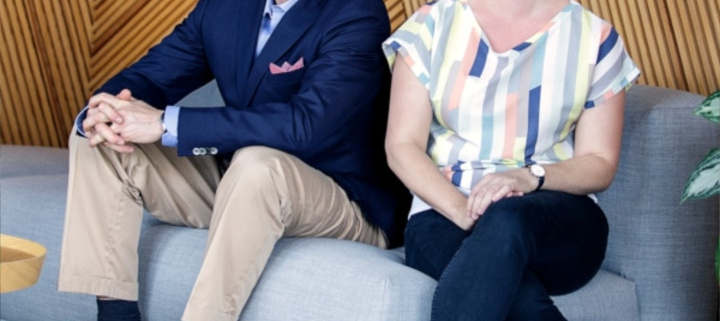It is only natural . . .
We all have a natural bias towards belief. This is generally a fairly good thing. If we didn’t naturally believe things, we wouldn’t have made it as far as we have as a species.
When life was relatively simple and things didn’t change much, this tendency helped us avoid a lot of problems. Imagine some hunter-gatherers picking berries: When the older people said ‘Don’t eat those ones’, believing them saved you a lot of stomach ache (or maybe even a painful death).
The ability to accept information from others and so learn quickly from each other has made us the dominant species on the planet. Believing others means as a team, humans prospered. I am not saying that being sceptical never had its advantages but running with the crowd was safe and that was quite an advantage. However, for innovators, it is advantageous to be conscious to what degree the pure belief was reasonable and where scepticism was appropriate.
Nowadays, there is a problem though.
Now life is a little more complicated AND things are changing at a rate the humans have never really experienced before: The global economy is undergoing a period of radical transformation into a fully networked world – Outernet, Industry 4.0, Smart Cities, eHealth and 3D-Printing are some of the revolutionary changes that are imminent or are in existence already.
If you are not happy to just run with the crowd and if you want to be ahead of the game, simply believing just doesn’t work anymore. As we enter new territories and interact with those who say that we should believe, it is a necessity to be more sceptical.
However, the bias towards belief is still strong and that means being sceptical actually takes effort. If you are distracted, stressed or not completely on the ball, you tend towards belief. This means information slips into our brains untested.
Marketers use this bias all the time. We tend to believe people who are familiar to us. This bias served us well when people were familiar to us because we knew them personally. The problem is that the world is a little different now. For example, I have never met George Clooney but because he is familiar to me he is still able to influence my choice of coffee maker. This is a problem because George is an actor not a coffee making expert. He was paid to influence me.
Now, don’t get me wrong.
I am very happy with my choice of coffee maker. What I am saying is that this quick belief is time saving and lazy. My thinking probably went something along the lines of: George Clooney probably wouldn’t endorse something really bad and they must be reasonably good or they wouldn’t make enough money to afford him so I’ll get one.
It is worth noting how our brains filter information too. We have a kind of border control that asks “is it reasonable?” as the information COMES IN. But, once the information is past border control it tends not to be checked again unless something really serious happens. Once these “facts” are in your head it takes a special effort to get them out. There needs to be a specific reason to “deport” them.
Confidence tricks.
This is why a lot of confidence tricks work. As each little bit of information comes in we check it to see if it is reasonable. If it is, it gets allowed in and it is then not usually checked again. This allows us to be drip fed misinformation:
The e-mail from a friend saying that they are on holiday and they have lost their credit card and need help paying the hotel bill. – Seems reasonable, these things happen . . .
The second e-mail that says you cannot pay the hotel directly because their payment system is having problems. – Not unreasonable right? These things are temperamental . . .
The third e-mail that asks you to wire cash to an account to help out . . .
It is obviously a scam when the information is all presented together but when we are presented the information piecemeal it seems reasonable.
Vulnerable
There is such a bias towards belief that we are even very vulnerable to mere innuendo. In psychological tests it has been shown that the headlines “Matt Pollard associated with fraudulent business”, “Is Matt Pollard associated with fraudulent business?” and “Matt Pollard not linked with fraudulent business” were ALL equally damaging to Matt Pollard’s reputation.
The last one is just as damaging because people think that there is no smoke without fire? Right?
So the next time you think you know something remember that perhaps you do know it but it might not be true. It is important to remember that you might be wrong.
Checking and being more sceptical takes extra effort but it can help you avoid some serious mistakes and take advantage of opportunities that others might miss.
When has being sceptical helped you? Maybe to avoid a mistake or see an opportunity? How do you manage the balance between believing and thinking (being sceptical)?


